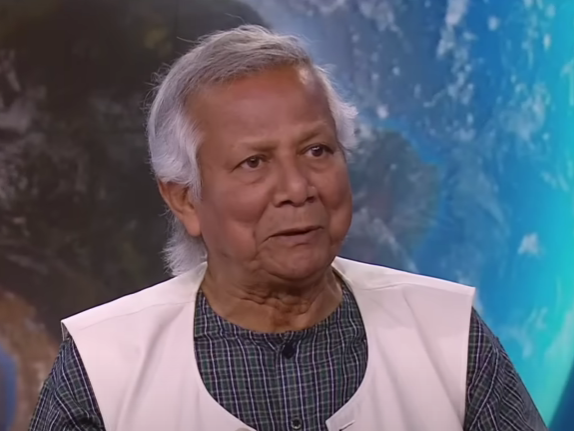Nobel Laureate Takes Charge Amid Political Upheaval
Nobel Peace Prize winner Muhammad Yunus has stepped up to lead Bangladesh’s interim government after Prime Minister Sheikh Hasina fled the country following weeks of violent protests. Yunus, 84, known for his pioneering work in microcredit lending, will serve as the “chief advisor” to the new government, as reported by The Daily Star.
Sheikh Hasina’s Departure
Sheikh Hasina, who had ruled Bangladesh for 15 years, left the country amid escalating protests over a controversial government job quota system. The unrest, marked by brutal crackdowns, resulted in the deaths of approximately 250 people and thousands more injured. Reports indicate that the Prime Minister departed Dhaka on Monday, and is currently staying in a safe house near Delhi.
Role of Muhammad Yunus
The decision to appoint Yunus, a national hero, was met with widespread approval among the protesters. Shahidul Alam, a prominent member of the civil society movement, confirmed that Yunus had agreed to take on the role of leading the interim government.
Public Reaction
The streets of Dhaka have seen a mix of jubilation and concern following the news. Demonstrators celebrated the end of Hasina’s rule, but there remains uncertainty about the future. “The first priority is that the country be safe for everyone,” said Alam, reflecting the cautious optimism among the populace.
Violence and Looting
In the aftermath of Hasina’s departure, violence and looting have erupted in various parts of the capital. Protesters stormed Hasina’s official residence, vandalized a statue of her father, and set fire to the Bangabandhu Museum. This chaos underscores the deep-seated anger and frustration among the Bangladeshi people.
Challenges Ahead
Bangladesh faces significant challenges in the coming months. The country’s parliament has been dissolved, and Yunus’s interim government will need to navigate the path to restoring stability and democracy. The advocacy group Freedom House currently rates Bangladesh as “partly free,” highlighting issues such as political harassment, media censorship, and endemic corruption.
International Reactions
Yunus’s leadership has been widely supported by the international community. However, with the UK refusing asylum to Sheikh Hasina, and reports suggesting her US visa has been cancelled, her future remains uncertain. India, where Hasina is currently staying, must carefully consider its next steps, balancing diplomatic relations and internal security concerns.
A Long Road to Recovery
Many in Bangladesh are calling for a genuine democracy free from authoritarian rule. The interim government’s success will largely depend on its ability to address the systemic issues that have plagued the country for decades. As Yunus takes on this critical role, the world watches closely, hoping for a peaceful and democratic resolution to the crisis.
Conclusion
Muhammad Yunus’s appointment as the leader of Bangladesh’s interim government marks a significant turning point in the nation’s political landscape. While the departure of Sheikh Hasina brings an end to a long period of autocratic rule, the road ahead is fraught with challenges. The international community and the people of Bangladesh alike look to Yunus to steer the country towards a brighter, more democratic future.

